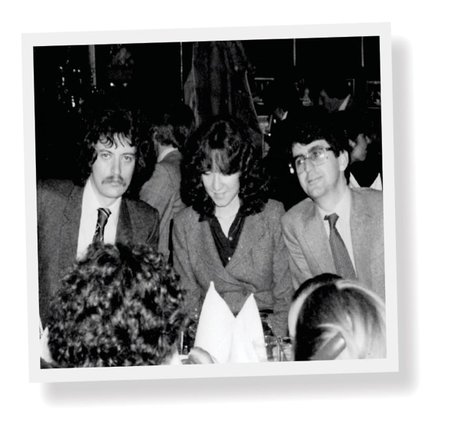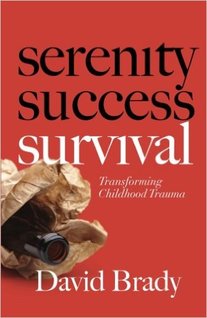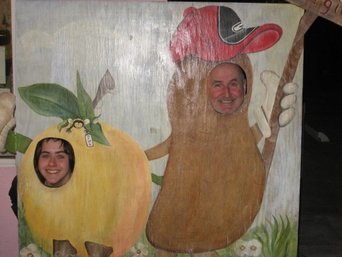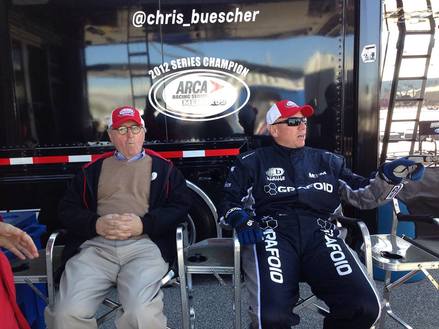 In August of 1986, I was basking in the glow of three very successful and exciting film projects: First was the nomination of my then-associate Phillip Borsos’s documentary film, Nails, for an Academy Award; second was executive producing Till Death Do Us Part, a small feature film that received very favorable reviews in Variety, The Toronto Star, and from many of the critics in Canada and the United States. The highlight was executive producing The Grey Fox, an independent feature film starring the late Richard Farnsworth. Francis Ford Coppola’s Zoetrope Studios presented the film. United Artists Classics released it. The Grey Fox received worldwide critical acclaim and commercial success. It won seven Genies (Canadian Academy Awards) and was nominated for two Golden Globes for Best Foreign Picture and Best Actor for Richard Farnsworth. We were on a roll. Buoyed by these successes, I began producing another feature film in The United States. While the cast and crew were incredible, the film lacked creative and critical cohesion. I accept responsibility for those deficiencies. The catalyst that propelled me forward was created by the problems I was having with the financing of the film. The financing I was counting on and paid for never appeared in our bank account. We were the victims of commercial fraud. I ended up personally owing US$4 million, which was over Can$5 million at the time, and I believed in my heart of hearts that I was going to be able to pull off a miracle—just like I had so many times before—and pay everyone off. I thought if I at least got the film finished, chances where I could recoup enough from it to achieve that goal. If I shut it down, there was zero chance of recovering anything, and my company and investors would be out over $1 million of our money. The Grey Fox had run out of money, so had Till Death Do Us Part. And we had recouped every cent, and then some. Every night for almost three months, I would go up to my motel room, shut the door, and go into a state of shock from fear. There was no one I could talk to because everyone was counting on me to keep the picture going. Every morning, before I went downstairs to start another day of shooting, I went to the bathroom and throw up from fear. I know from personal experience what it is like to lose everything, to face massive public criticism, and to face an economic recession—and in this case, a self-created financial depression. I survived them all and came away more prosperous, peaceful, and more purposeful than I’d ever been. I have learned how to make my life manageable, keep my word, and reclaim my life despite what appeared to be an impossible situation. In an odd way, at a micro level, my life emulated what is going on in the world today at a macro level. I had allowed greed, self-centeredness, and ego (edge good/God out) to take over my life. At the time, I just thought I was doing what I had been told by my father would make me successful—and, I assumed, happy. Wrong again! I hate that, being wrong. Here is what I believed and what I had been told in my childhood: make a lot of money, gain a lot of attention, acquire a beautiful home and an equally impressive car and a beautiful woman—flip the order in whichever way you want. I had all those things in spades. I had met a few wonderful women over a seven-year period, acquired a beautiful home on the Pacific Ocean in West Vancouver, shared a beach house in Malibu, and rented an apartment overlooking the East River in Manhattan and a beautiful townhouse in Toronto. I constantly moved between these four residences. Deep down, because of the violence of my childhood, I had no self-esteem. I didn’t want anyone getting too close to me. So, the lack of material resources was not my problem. My problem was recklessly borrowing money to keep up that wild lifestyle. In addition to the US$4 million that I personally owed, I had approximately 605 lawsuits launched against me. It was not just the dark night of the soul; it had moved up to bleak, barren hopelessness, and I had nowhere to turn. There is no way to adequately describe the feelings I had at that time. As I previously mentioned, fear ran rampant. I couldn’t sleep at night. I was filled with an impending sense of doom and a real sense of despondency. Then it dawned on me. I was either going to kill myself or crawl out of the hole I’d dug, which originally had functioned as my shelter in my childhood to survive living in an insane, alcoholic home. I had built an impenetrable wall around myself for self-protection; only now, as an adult, I couldn’t break through the barriers I had erected to protect myself to ask for the help I needed. Because of that experience, I began to question every aspect of my life. Why did I live in a perpetual state of fear: fear of the future, fear of failure, fear of success, and fear of financial insecurity? When I had these overwhelming feelings, why did I insist on living out on the edge like I did? In my bravado, I used to say I had no fear of debt, but I was terrified of creditors. I also wondered, despite all the success I’d had, why did I have such low self-esteem? I could never feel how others looked on the outside: confident, gregarious, and well-put together. Others saw me as a success, but I couldn’t. I felt like a fraud. No matter how well I did, my mind would tell me I could have done it better. Why did I constantly blame others for my troubles? It was not the first time I had sabotaged myself. The moment I accepted that I was out of money on the film and had no hope of any financial salvation, I knew my life as I’d led it was over. I also thought my career was over, too. The film wasn’t finished, and I was starting to think it never would be. I didn’t follow the business advice that was suggested and declare bankruptcy. I felt if I did, I would never learn whatever it was I had to learn about managing my finances and my life. Nor would I get to the cause of why my life was out of control, financially and emotionally. If I didn’t take a stand and confront myself about why I’d acted and behaved the way I had, chances were I would find myself right back in the same position again. In this case, once was enough, and I’m grateful to say it was and has been. Finding the answers to why my life was so unmanageable has been a long, slow process that is still underway today. I was incredibly depressed and wondered if I would ever be able to start overcoming any of the difficulties I was facing. I owed so much money; I didn’t know where to start. Finally, after four years of very intense personal work, I began sending out payments of $5 to various individuals whom I owed thousands or hundreds of thousands of dollars to. In the past, it had always just been empty talk and empty promises. At least with $5 (though admittedly a drop in the bucket), it was a real, concrete action and showed my good intentions. One lawyer in New York said I restored his faith in humanity. In the last few years, the payments have risen significantly, but with so many people I also had to prioritize my creditors. There is a whole group I’ve never even begun to repay. I was told to take care of first the people who had stood by me through the difficult years. This is where I still am today. I could sell off individual assets I owned such as screenplays, video rights, and revenues from the film to reduce the production debt to a more manageable level. I have never personally realized another penny from the film.  It was a horrific, humiliating experience for me. I have never felt so much pain, except for my childhood, from that experience of failure. But out of pain comes growth—tremendous growth. I couldn’t see it then, but in retrospect, the film gave me my life back. No one could have told me that at the time, however. Perhaps you haven’t lost millions of dollars, but you might have lost your job or your company because of the recent economic downturn and the current political uncertainty currently swirling around North America. Maybe you lost your home during the housing crisis between 2007 and 2009 as many thousands of people did. Perhaps you are on the verge of losing your house or your car right now. Maybe you’re struggling with a substance abuse issue. Or, you might be facing bankruptcy, or your husband or wife or partner may be walking out on you because you have difficulty forming and sustaining a long-term relationship. I know that I experienced many of these feelings and emotions and have had the same questions racing through my mind at various times. Today, I feel as if my life has been utterly changed. It doesn’t mean I still don’t feel angry and resentful from time to time or that I don’t have bad days. But I am no longer as powerless over my emotions and my fears as I once was. I am no longer run by my thoughts about the future all the time. I do have peace of mind a great deal of the time. I also have a life I could never have dreamt possible in the past. I was married for nearly twenty years, and when my wife and I split, the divorce was done with love and compassion on both sides. I have regained the love of my son from my first marriage and reconciled with my oldest daughter and her family. I have found the ability to forgive myself for my past mistakes. I have been able to set right most those relations in my past where I hurt others—especially my family and friends. I have done the work to heal my childhood trauma, and reclaim my life. I am happy 80 percent of the time. I also have a mind that, when I’m in the 20 percent downturn, tells me I will always feel that way. My mind lies to me. That’s why today when my mind starts to chatter about all the horrible things that are going on in the world, I just thank it for sharing.
0 Comments
 David with his youngest daughter, Laurel, on a fun trip to Florida with her brother Brendan. David with his youngest daughter, Laurel, on a fun trip to Florida with her brother Brendan. HAVE SOME FUN WHILE AGING! If you were born between 1945 and 1965 you will remember the refrain, “Don’t trust anyone over thirty.” We were the generation that created that myth, and we are the generation that can change it. Nowadays, if we are operating out of the same flawed paradigm and applying it to our lives today, we’d say, “Don’t trust anyone under fifty.” I really believe now that nothing could be further from the truth. OUR CURRENT POLITICS OF WAR Finding an answer to war - what do we need to do to realize we are operating out of a part of our brain that is millions of years old will never work in our current society? Violence will never solve any problem, and yet it is often the first avenue that we pursue. It is hard-wired into our brains. Our reptilian/mammalian brain is connected that way to save us from aggressive predators. The only trouble is that there are no more dinosaurs on the planet. But you can’t tell that to our brain stem. According to Dr. Paul MacLean, the triune brain stem is responsible for aggression, territorial and reproductive behavior. They are the primary triggers for all of our problems in life. While it was helpful for our survival, hundreds of thousands, or even millions of years ago, it ends up causing us untold grief, regret and pain when we let it control our body and minds. It will have us say and do things that, when we are not in our “right mind”, we should never say or do. Essentially we have outdated software in our brains. That is why we need to utilize tools like the Eight Steps, to reprogram our thinking so we can overcome these ancient triggers that create so many problems for us.  AGING AND MONEY As it turns out, according to some economists, it is those of us well over 50, specifically the ‘baby boomers’ that are controlling the purse strings of the world’s economy these days. Apparently we are in charge of over eighty percent of wealth on the planet today. We still have a voracious appetite for spending and consuming, on either quality projects like philanthropy, art and culture, or consumer goods. Boomers just love cars, motorcycles, motor homes, vacation homes, travel, food, alcohol and gifts for those we love. But are the latter the only things we should be pursuing? If we believe they are the key to our happiness, it might be a good idea to analyze those beliefs without blindly accepting them as truth. EGO ( Edge Good Or God Out) If all you are doing is satisfying an insatiable urge to have more in order to appease your ego, then watch out, as you may not really be a happy camper. The question you might want ask yourself is what have you done lately to make a difference on the planet? What about those of us who feel we aren’t in a position to help others or the planet? There are definitely those of us who haven’t planned for our futures as well as we should have. What will happen to us? Once again my mind that defaults to nasty lies starts up: “You will end up penniless, a pauper working a corner with a cup!” If we keep our wits about us, this need not happen. Youth is fine for backbreaking and heavy slugging but, the intellect of those who are more mature, gifted with our wealth of experience, is worth its weight in gold. And we can all realize this with some simple steps and planning. If you can remember back when life was “groovy”, we didn’t have a care in the world. That is a great place to get back to. And it’s attainable.  In the pits at the Daytona 500 with Race Car Driver Derek White in 2016. In the pits at the Daytona 500 with Race Car Driver Derek White in 2016. THE TRUTH ABOUT BEING A BABY BOOMER AND AGING What is the truth about being a ‘boomer’, becoming a Sage? Many of us still have a good sex drive. It is, however, much more emotional and psychological than physical. In many cases, it is based on true intimacy rather than raw, self-centered sexual satisfaction. We can try new adventures or new occupations where we don’t have to feel shame or blame if we don’t bat a thousand. In his book, The Spirituality of Imperfection, Paul Kurtz points out that in baseball if you hit three hundred, you will be paid millions of dollars to join a major league baseball team. What that means is that 7 out of 10 times you will miss hitting the ball. Baseball is the only game in the world that recognizes errors as part of the process. We want to liberate ourselves from old beliefs, old self-defeating thinking that we acquired somewhere between the ages of 3 and 12. None of us are perfect, and every one of us makes mistakes – and that includes you and me! Many of us have unresolved issues from our pasts and our childhoods. It is imperative that we let go of old, self-defeating thinking about our dreams or ideas that we had in our youth that no longer support us. It is important to age gracefully. Many of us had unhappy childhoods; unfortunately they’ve lasted fifty or sixty years. The good news is it’s never too late to have a happy childhood! For example, holding onto the idea that I need to be liked by everyone is self-defeating. Not everyone will like us. As a matter of fact, what others think of me is none of my business. It’s more important to like ourselves, just the way we are and not worry about what others think of us, period. The goal is to be mature (hopefully) adults who should strive to be role models of how it is to age gracefully and with purpose. This definitely does not mean trying to act like a teenager by dressing in the current style of young adults or tying to use their vernacular. My advice? It’s best to avoid playing any forms of emotional and psychological Russian roulette. It hardly suits our… well, ‘mature’ selves. We all should all try to pursue some kind of physical fitness to add to our quality of life. Okay, I already mentioned sex, but what else can we include that’s reasonable for our aging bodies? I try to do aqua fit classes at least two days a week, but three is optimal. I also do 50 push-ups off my bathtub side three mornings a week. I walk everywhere I can. I make a point of leaving my car at home if I can. So exercise is good for mind, body and spirit. Trying to emulate the Y generation is not.  FAITH For many of us it is critical to our well being. I want to emphasize, I’m not necessarily talking about religion. I’ve personally been an agnostic a lot of my life. I had great faith when I was young and then I studied and educated myself beyond my level of comprehension. As a result, I lost my childhood faith. It didn’t make sense to me considering scientific and empirical evidence (or so I thought). If you have a traditional faith that works for you, then you are ahead of the game. For a lot of us though, our focus is on a faith in something greater than we are. It doesn’t matter if it’s your local hydro provider, the nearest electrical current or Einsteins theory of relativity. As long as it’s bigger & more powerful than you and it makes sense to you. The truth is, faith does work. It helps us stay alive, healthy and happy. Research shows time and time again, when we have a community of like-minded people we can spend time with, we are always going to feel improved happiness. Perhaps your community is a power greater than itself that can easily help you connect to a sense of something bigger? As it turns out, isolation is aging’s worst malady. If there is one thing I’ve learned, if you want to enjoy and maybe even have some fun in your ‘golden’ years, avoid isolation like the plague. |
David BradyDavid Brady has 30 years of experience as an award-winning writer, producer and director of feature film and international television productions. In June, 2015 he founded David Brady Communications and changed his focus on writing nonfiction books. Archives
May 2017
Categories
All
|

 RSS Feed
RSS Feed